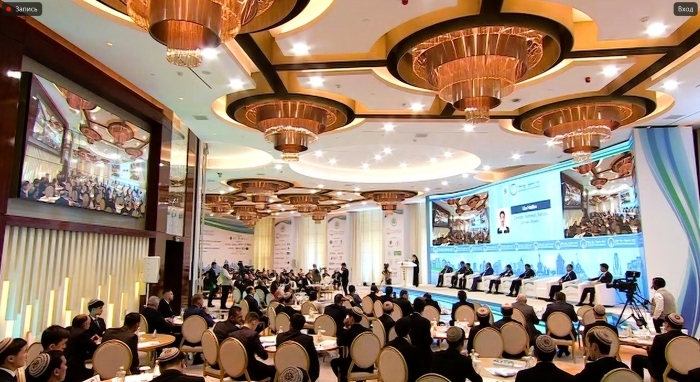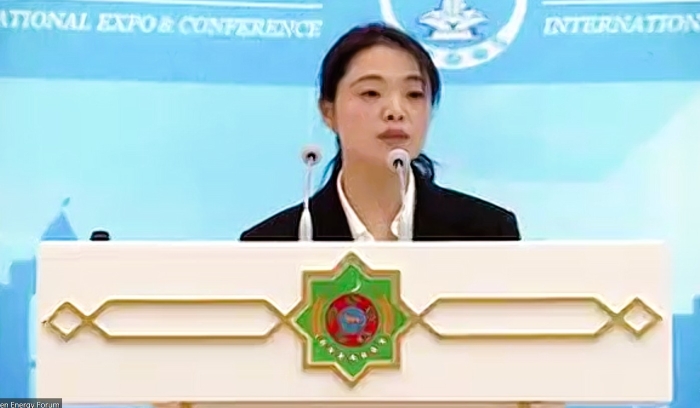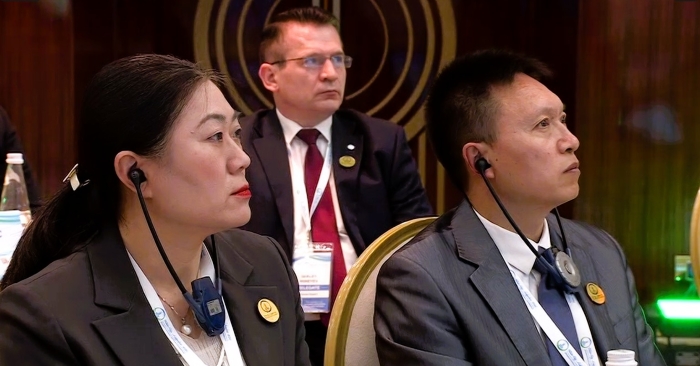The third and final session of the “White City Ashgabat” conference was dedicated to technological innovations aimed at modernizing Turkmenistan’s construction, industrial, and energy sectors.
Key participants included representatives from Chinese companies, who presented proposals tailored to adapting Turkmenistan to the rapidly evolving technological landscape.
ACME Power and Turkmenistan: A Technological Partnership for the Future
Ms. Liu Haibo, General Director of Jiangsu ACME Power Co., Ltd, emphasized the importance of integrating advanced technologies into Turkmenistan’s construction, industrial, and energy sectors.
ACME Power offers not just equipment but develops and supplies modern, energy-efficient, and reliable engineering systems for high-temperature processes, metalworking, energy, and construction industries.
Turkmenistan’s economic growth and industrial modernization drive the demand for energy-efficient and high-tech systems.
The company focuses on projects that meet high standards of automation and energy efficiency, reducing operational costs and minimizing environmental impact. According to Liu Haibo, ACME Power sees strategic potential in partnering with Turkmenistan and is ready to invest in technologies, talent development, and sustainable growth.
What Inspur Software Can Offer Turkmenistan
Inspur Software, one of China’s leading software developers with 30 years of experience in informatization, is ready to offer Turkmenistan its extensive expertise and innovative solutions for economic modernization.
Their offerings cover key areas, from digital transformation to talent development, as outlined by Zhao Shaoxian, Chairman of Inspur Software.
Digital Government Solutions: Inspur has experience in building “digital government” systems, improving engineering safety oversight efficiency by up to 40% and reducing energy system operation and maintenance costs by 25%.
– BIM Digital Twins: In construction, Inspur offers its BIM digital twin platform, which has reduced construction timelines by up to 20%, as demonstrated in 30 smart parks in China.
– Smart Grid Transformation Plan**: Inspur is prepared to share its smart grid transformation plan for Turkmenistan’s energy sector, incorporating AI-driven load fluctuation forecasting and coordinated regulation of wind, solar, and energy storage to increase clean energy utilization by over 15%.
– Industrial Internet + Vocational Education Model: Inspur proposes a three-tier integration mechanism (“industry needs list + educational course package + production practice station”) to align talent training with Turkmenistan’s industrial modernization needs. This is based on their successful experience in Shandong, where 30,000 specialists were trained in three years.
– Joint Digital Transformation Laboratory: Inspur is ready to establish a joint digital transformation laboratory in Turkmenistan to set standards, address technological challenges collaboratively, and deepen talent exchange.
According to Zhao Shaoxian, Inspur’s technical solutions can be adapted to Turkmenistan’s resource base.
Unilumin Technology: Innovative Solutions for Modern Turkmenistan
Shenzhen Unilumin Technology, a global leader in optical displays and LED exports, offers Turkmenistan a wide range of innovative solutions to enhance urban interactivity, improve industrial efficiency, and develop a technological ecosystem. Based on the speech by General Director Song Li, the following key proposals stand out:
– Smart Streetlights: Integrating 5G micro-base stations and environmental monitoring modules into streetlights. These “smart” streetlights can collect real-time data on dust levels, temperature, and humidity, providing valuable insights for smarter city management.
– National LED Display Networks: Establishing a nationwide intelligent LED display network to serve as Turkmenistan’s “calling card” for global promotion and a “digital magnet” to attract tourists, significantly boosting the country’s global recognition.
– Industrial Digital Mirroring: Implementing real-time production line monitoring systems for industries like textile factories and oil and gas fields. This involves deploying 4K displays that synchronize equipment performance data, with AI algorithms automatically detecting anomalies (e.g., textile machine overloads or pipeline pressure fluctuations). This approach can reduce troubleshooting time from 4 hours to 15 minutes and increase production efficiency by 35%.
– Metaverse Educational Scenarios: Offering holographic solutions for classrooms that transform textbook content into interactive 3D experiences. Students can virtually “dissect” dinosaur fossils or “participate” in ancient caravan trade. Combined with real-time multilingual translation systems, this solution can enhance educational content saturation in remote areas by 40%, enabling “immersive learning without boundaries.”
– Industry-University-Research Collaboration: Establishing a joint innovation center with the Academy of Sciences of Turkmenistan and local universities. This partnership will focus on developing optical display applications tailored to local needs, such as desert environmental data visualization and cultural digitization tools.
– Local Talent Development: Creating an “Optical Display Technology Training Base” with a “theoretical learning + project practice” model. This initiative can train at least 20 local engineers annually across the entire technical job chain, including equipment operation, maintenance, and digital content production.
Unilumin believes that optical display technology is not just about arranging pixels but serves as a digital bridge between tradition and the future. The company is ready to collaborate with Turkmenistan to create a “technological symbiosis and co-creation of value.” ///nCa, 25 May 2025


